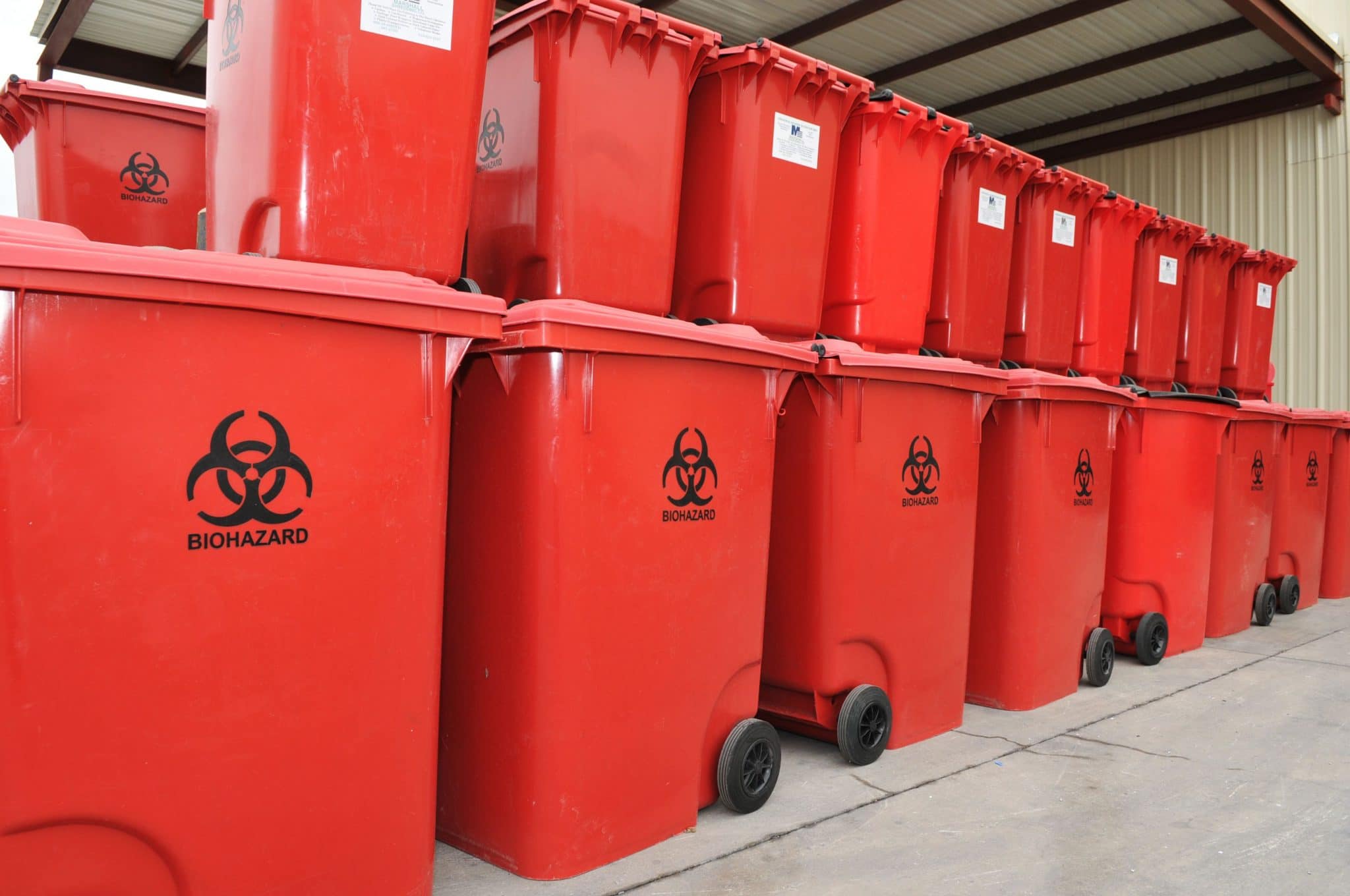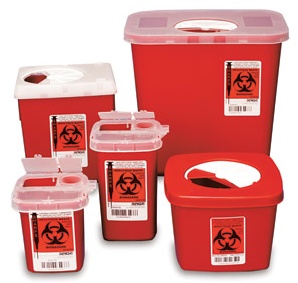Liable Solutions: Understanding Medical Garbage Disposal Solutions
In the world of healthcare, the proper disposal of medical waste is an important aspect that requires careful factor to consider. As medical care centers generate numerous kinds of waste that call for specific handling, recognizing the subtleties of clinical waste disposal solutions is critical.
Relevance of Proper Medical Garbage Disposal
Proper medical waste disposal is crucial in maintaining a hygienic and safe environment within health care facilities. In health care settings, different types of waste are produced daily, including transmittable materials, sharps, ran out medications, and chemical substances.

Kinds Of Clinical Waste
Within healthcare centers, a varied selection of waste products classified as clinical waste is created, each needing specific handling and disposal techniques. Pathological waste, which includes cells, organs, and body parts, demands correct disposal to respect the self-respect of the deceased and protect against any type of biohazards. Comprehending the numerous kinds of medical waste is crucial for medical care facilities to implement reliable waste management techniques and protect public health and wellness and the environment.
Laws and Compliance
Health care centers must stick to rigorous policies relating to the handling and disposal of clinical waste to ensure conformity with legal requirements and guard public health and wellness. These policies are put in place to protect against the spread of infections, safeguard the atmosphere, and preserve the safety and security of medical care employees and the general public. Various regulative bodies, such as the Epa (EPA), the Occupational Safety And Security and Health Management (OSHA), and the Department of Transportation (DOT), have certain guidelines that medical care facilities need to comply with.
To abide by these laws, medical care centers should properly segregate, shop, transportation, and take care of different types of medical waste. This consists of sharps waste, contagious waste, harmful waste, and pharmaceutical waste, each calling for certain managing procedures. Facilities needs to also maintain precise records of waste generation and disposal to demonstrate conformity throughout evaluations.
Non-compliance with medical waste laws can cause serious charges, fines, and damage to the center's reputation. It is crucial for healthcare centers to remain notified regarding the most recent policies and execute robust compliance measures to safeguard public wellness and the environment.
Advantages of Professional Disposal Services
Engaging expert medical waste disposal solutions uses health care facilities a reliable and trustworthy service for managing hazardous products. These solutions utilize skilled professionals that are well-versed in managing different kinds of clinical waste, making certain correct partition, transport, product packaging, and disposal. Medical Waste Disposal Services.
Furthermore, specialist disposal solutions use cutting edge tools and follow market ideal methods to reduce environmental influence and minimize the danger of contamination. This not just advertises a safer workplace for medical care personnel however additionally adds to overall public health and safety. Additionally, outsourcing clinical garbage disposal can lead to cost savings in the long run by removing the demand for in-house administration and disposal systems.
Lasting Practices in Health Care

One secret lasting method in medical care is waste reduction. By executing techniques to lower unnecessary product packaging, single-use items, and total waste generation, medical care centers can dramatically decrease the quantity of waste sent to landfills or incineration. Additionally, recycling programs for materials like glass, paper, and plastic can even more minimize the environmental influence of healthcare operations.

Conclusion
In conclusion, appropriate medical waste disposal is critical in keeping a healthy and risk-free environment for both health care workers and the general public. Comprehending the various kinds of medical waste, complying with regulations and conformity standards, and using professional disposal services are necessary actions in responsible waste administration. By embracing lasting methods in health care facilities, we can lower ecological influence and make certain the health of all individuals entailed in the healthcare industry.
As health care centers produce different types of waste that call for specific handling, recognizing the subtleties of medical waste disposal services is critical.Within health care facilities, a varied range of waste products categorized as clinical waste is produced, each requiring specific handling and disposal approaches. Understanding the numerous types of medical waste is important for health care centers to apply effective waste monitoring strategies and protect public health and the atmosphere.
By implementing strategies click to minimize unneeded product packaging, single-use items, and overall waste generation, healthcare facilities can considerably lower the quantity of waste sent out to garbage dumps or incineration. Comprehending the different kinds of clinical waste, complying with guidelines and conformity requirements, and making use of professional disposal solutions are crucial steps in responsible waste management.